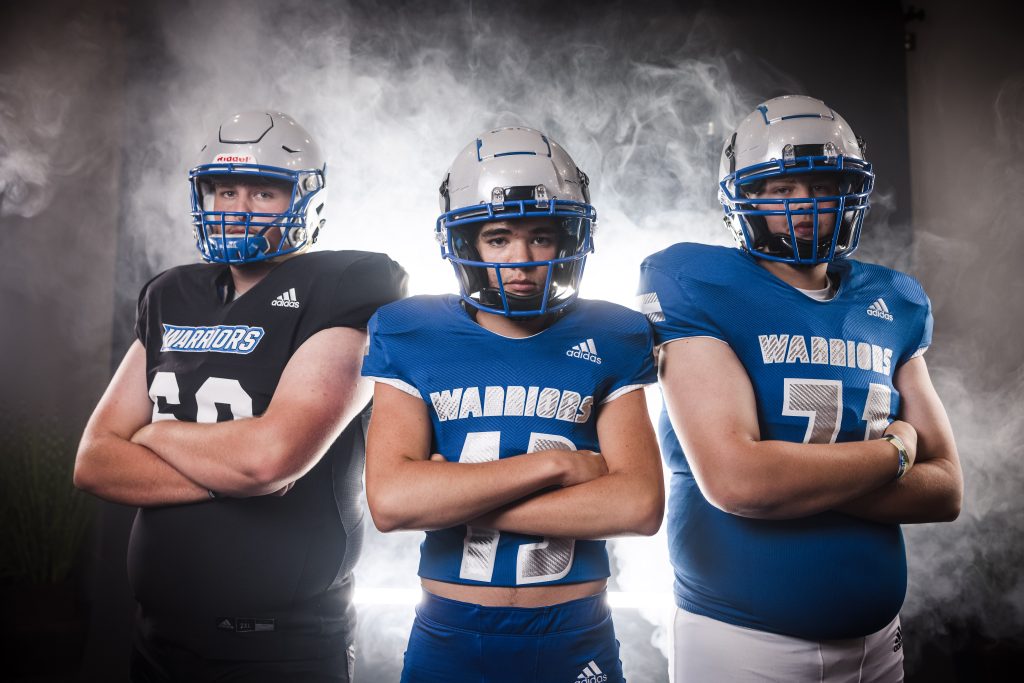
Photos Andy Calvert - L-R: #60 BROCK SHELLHOUSE OL/DL #13 PEYTON WILSON- QB/DB #71 ZAC PARDUE- OL/DL
Sports › High School Football Preview
With a somewhat good mix of experience and youth, it’s possible they can fight for a playoff position this season.

Photos Andy Calvert - L-R: #60 BROCK SHELLHOUSE OL/DL #13 PEYTON WILSON- QB/DB #71 ZAC PARDUE- OL/DL